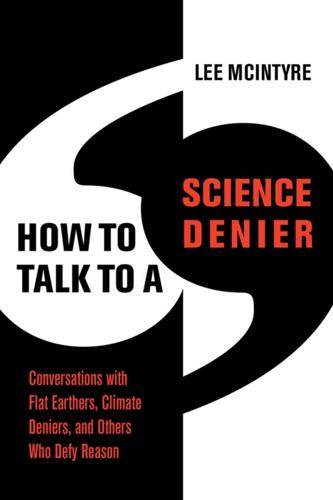
How to Talk to a Science Denier: Conversations With Flat Earthers, Climate Deniers, and Others Who Defy Reason
by
Lee McIntyre
Published 14 Sep 2021
Even though the scientific consensus on climate change is 98 percent, and 97 percent on evolution, why do 16 percent of Democrats not see climate change as a major threat, and 33 percent have doubts about evolution? Michael Shermer, “The Liberals’ War on Science,” Scientific American, February 1, 2013, https://www.scientificamerican.com/article/the-liberals-war-on-science/. 6. Stephan Lewandowsky, Jan K. Woike, and Klaus Oberauer, “Genesis or Evolution of Gender Differences? Worldview-Based Dilemmas in the Processing of Scientific Information,” Journal of Cognition 31, no. 1 (2020), https://www.journalofcognition.org/articles/10.5334/joc.99/. 7. This hypothesis must be squared, though, with research that shows people often gravitate toward political identities that fit their preexisting values, or even their brain chemistry.
…
One should note, though, that Stephan Lewandowsky challenges the idea that anti-vaxx is bipartisan, and instead believes that it comes mostly from the political right. This still leaves the intriguing question of whether, to the extent that both liberals and conservatives believe in anti-vaxx, they do so for the same reasons. See Lewandowsky, “Genesis or Evolution of Gender Differences? Worldview-Based Dilemmas in the Processing of Scientific Information,” Journal of Cognition (2020). As to the question of whether anti-vaxx is nonpartisan, to the extent that it hasn’t been politicized at all, I wonder whether this might have changed since the COVID-19 pandemic. 26. Joan Conrow, “Anti-vaccine Movement Embraced at Extremes of Political Spectrum, Study Finds,” Cornell Allience for Science, June 14, 2018, https://allianceforscience.cornell.edu/blog/2018/06/anti-vaccine-movement-embraced-extremes-political-spectrumstudy-finds/.
…
Yes, if someone were dubious about free markets, they might more likely be skeptical of big capitalist corporations (like Monsanto), so this might be expected to predict anti-GMO sentiment. But that is a long way to travel. What does asking subjects about their agreement with statements like “The free market system is likely to promote unsustainable consumption” have to do with GMOs? Perhaps a different worldview question for GMOs—such as “I think that big corporations cannot be trusted to look out for our health and safety”—might have yielded a different answer. Second, as Lewandowsky admits: Although our sample was representative, it may not have included a sufficiently large number of participants at the extreme end of the ideological spectrum.
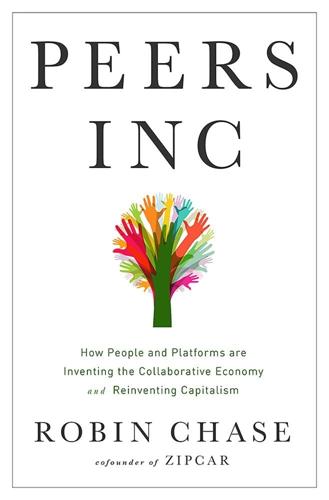
Peers Inc: How People and Platforms Are Inventing the Collaborative Economy and Reinventing Capitalism
by
Robin Chase
Published 14 May 2015
That story stayed with me on the subway ride back home to my house, and when I went to pick up my six-, nine-, and twelve-olds from school. It ricocheted through my head all afternoon. And I repeated it to my husband once my children had been put to bed. It seemed that venture capitalists and I had completely different worldviews. I thought you could trust people. That the vast majority of people were good. That I could count on my father, and even a stranger, to catch me if I fell within arm’s reach. Every day, perhaps naively, I try to find and build the world I want to live in. From the outset, I saw Zipcar as an example of a different way of thinking about business, in which assumptions about trust, responsibility, and collaboration were changed.
…
See BlaBlaCar; G-Auto; GoLoco; LaZooz; Lyft; Ridesharing; Uber; Zipcar urban, 7–9, 188–189 Trip chaining, 30 Trulia, 41 Tunisia, mesh network, 246–247 “Turn Down the Heat: Why a 4°C Warmer World Must Be Avoided,” 90 Twitter and political activism, 83–84 shutting down APIs, 120–121 Uber benefits to peers, 50–51 disgruntled drivers, 123, 253–254 “everybody welcome” phase, 111–112 regulation, vs. taxis, 149–151 surge pricing, 129–130 and user choice, 141 UK National Health Service, 144–145 Unemployment, through automation, 191 Unilever, 226–229 United States Army, opening to innovation, 169–170 User choice, 141–142 uShip, 94 Value, shared, 201–202 Van Schewick, Barbara, 140–141 Veniam, 276 Venture capitalists, different worldviews, 10–11 Vidal, Christophe, 176 Volunteer coordinators, 210–211 Von Ahn, Luis, 27–28, 78–80 Wages, and productivity, 196–197, 197 Wales, Jimmy, 110 Waze, 30–31, 70 Weather Channel, The, 41 WhatsApp growth compared to Skype, 112–113 number of users, 77 use of existing structure, 46, 76–77 Whitney, Patrick, 80 WiFi, additional spectrum, 147 Wikipedia, early development, 110 Woolard, Caroline, 203–204 Worker protection laws, 156 World Bank climate change report, 90–91 World Resource Institute.
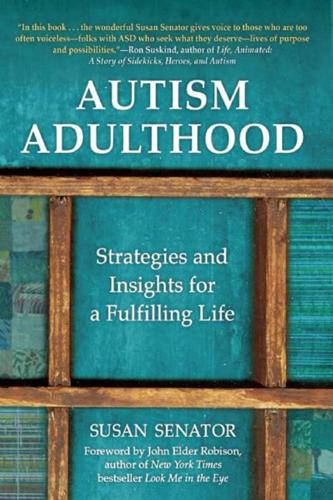
Autism Adulthood: Strategies and Insights for a Fulfilling Life
by
Susan Senator
Published 4 Apr 2016
Consider risk as an aid to independence Navigating social norms Being autistic, gay, and coming out Nat and the girl on the T Chapter Six: The Struggles of Apparently High-Functioning Autistic Adults Autism and self-discovery through writing Freeing oneself from a legacy of domestic abuse Married, autistic, and happy Bouncing back after a mostly difficult life Chapter Seven: Autistic Adults with Communication or Apparent Cognitive Challenges Nat’s communication evolution/revolution A few words go a long way Verbal, smart, but still struggling When he can’t speak for himself Chapter Eight: Am I My Brother’s Keeper? When a sibling is the guardian Growing up with an autistic sibling and loving it An older sib, a very different worldview Sibshops: offering critical support for the brothers and sisters A different kind of sibling Chapter Nine: Autism Adulthood Health and Safety Issues Figuring out if he’s safe Using my intuition A new diagnosis Another parent’s quest for answers about autism catatonia A leading neurologist weighs in on the benefits of a multidisciplinary approach Wandering, getting lost, and tracking Chapter Ten: I Can Never Die, and Other Myths A lifetime of planning leads to equanimity The future involves friends and family Opting for more independence A sibling firmly in charge Separation and letting go State House story EPILOGUE RESOURCES GLOSSARY FOREWORD by John Elder Robison, author of Look Me in the Eye EVERY AUTISM PARENT I know has fantasized about the day their child grows up to be a software designer, or some other quirky independent professional.
…
I never had a younger brother who is ‘normal.’ It’s never been that much of an issue, because it’s never been any other way. Mine is just a little more different.” Similarly, Max and Ben are fond of repeating Nat’s odd, charming words, “It’s a different, that’s OK.” An older sib, a very different worldview My sibling research took me to some older siblings in their fifties and sixties. Pamela from South Carolina and her younger sister Sheila are from a completely different era than Nat, Katie, or Aaron. Sheila, who is fifty-six, is “like a five-year-old,” Pamela said. The incident that led to her institutionalization was something right out of the movie Rain Man.
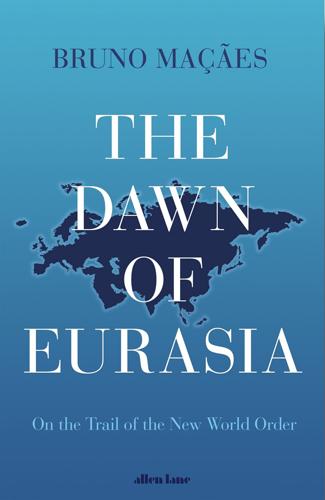
The Dawn of Eurasia: On the Trail of the New World Order
by
Bruno Macaes
Published 25 Jan 2018
To see the history of the twentieth century in these terms is to realize that the Berlin Wall was but a small and temporary segment of a much larger and more permanent civilizational wall separating Europe from Asia, a divide whose precise demarcation kept shifting throughout the centuries and one whose nature was, first and foremost, intellectual. It was based, as we shall see in Chapter 1, on different worldviews and a different understanding of human knowledge and human history. At times, during the age of the global European empires, it may have seemed that it would become obsolete, since the whole world was in the process of becoming European. It did not happen that way. During the Cold War, the Soviet Union was always surrounded and contained by the capitalist bridgeheads in Europe, Pakistan, Japan and South Korea.
…
That is what we stand for. And this is increasingly popular all over the world. People are fed up with arbitrary decisions. They want to live under rules, this is why they envy Europe and are attracted to us.’ ‘To be sure. That I do not disagree with. But the question is in my opinion a previous one. We have different worldviews and we have to make them fit together. The problem with the European Union is that it seems to assume that there is a neutral framework of rules, whereas the real issue is which rules will prevail, an issue that no rule can decide.’ When we turned to a concrete example, the issue came into sharper focus.
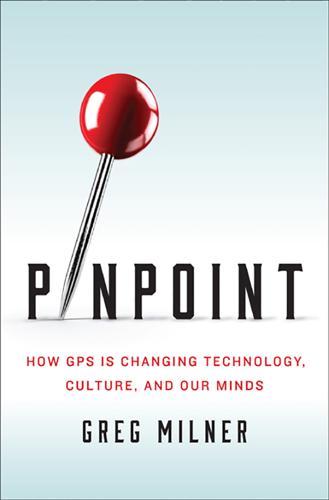
Pinpoint: How GPS Is Changing Our World
by
Greg Milner
Published 4 May 2016
Tevake represented the last link to firsthand knowledge of how humans had conquered the most treacherous third of the world. And Lewis had failed to extract that knowledge before the link was severed. Lewis looked again at Tupaia’s map. He suspected it represented a way of conceiving space that was similar to Tevake’s—literally, a completely different worldview. Some principles of ancient Polynesian navigation are incredible to behold, but conceptually simple to grasp—that is, we can imagine how they would work. We understand that any navigator must first set a course. The Polynesian navigator’s primary tool would be his sidereal compass. Not a compass in the way we understand the term, the sidereal compass cannot be held in the hand—it is all in his head.
…
The results suggested that Tupaia had not created an objective map of the Pacific, but a subjective view from his perspective presented, as closely as he could imagine, in the language of Cartesian space. The map was not so much a map as it was a “mosaic of sailing directions.” It was a way for Tupaia to represent his conception of navigating the Pacific. Tupaia was trying to map a system similar to etak. He was attempting to reconcile two very different worldviews, and he nearly succeeded. His map is relatively accurate as a map—enough to make Cook think that’s what it was, but not enough for it to make sense to him. “Both could look at the manuscript and see their own system represented,” the researchers noted. By the time this analysis appeared, the mystery of Polynesian migration was largely settled.
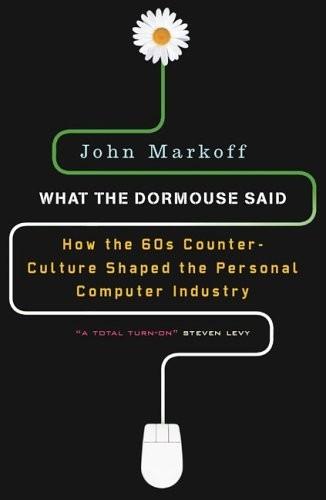
What the Dormouse Said: How the Sixties Counterculture Shaped the Personal Computer Industry
by
John Markoff
Published 1 Jan 2005
Following Licklider’s lead, Taylor was instrumental in pursuing technologies that enhanced human-computer interaction, and he remained Engelbart’s single most significant backer throughout the sixties. He was emblematic of a small group of scientists at the Pentagon at the height of the Vietnam War who had a very different worldview than much of the military organization that employed them. The people working with Taylor in the Defense Department who supported the computer-research activities of the 1960s were largely uncoupled from the military. Not only did they keep their distance from the soldiers in uniform, but they also had a set of values more in common with those in the universities and the corporate laboratories than with the bureaucratic system that was waging war in Southeast Asia.
…
Moreover, in Hawaii, ARPA-funded experimenters were playing with the idea of creating wireless networks, and so it made sense that his notebook-sized Flex machine would have a wireless connection to the outside world as well. All of these systems and ideas began to bubble together in a hazy synthesis. Early on, however, Kay realized that he had a different worldview than Engelbart’s. He thought that Engelbart’s concept was more like a “personal dynamic vehicle,” which in Kay’s mind was still too similar to IBM’s bureaucratic and impersonal mainframe railroads. Moreover, the real breakthrough, he decided, would be to create a personal dynamic medium. Influenced by Papert, he realized there was no sense in waiting until high school to begin studying computers, using a drivers’ education analogy for personal computing.
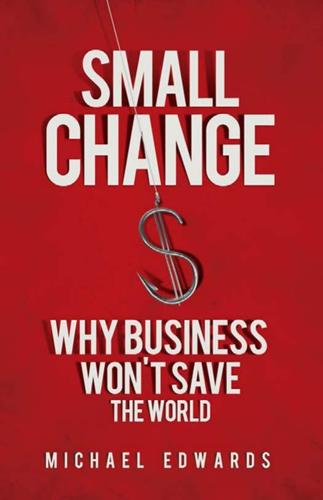
Small Change: Why Business Won't Save the World
by
Michael Edwards
Published 4 Jan 2010
That is why we need alternative allocation mechanisms through government and civil society for things like public spaces or access to the Internet, which markets would distribute unequally, if at all. The profit motive is not a dirty word, but it is a different word from solidarity and caring with no expectation of return. These differences cannot be wished away. They are rooted, often unconsciously, in different worldviews and cultures. But market values and human values are not just different; they pull in opposite directions in many important ways, and the risks involved in mixing them together are apparent in the evidence reviewed in chapter 3. Unless those risks are recognized, it won’t be possible to identify when business thinking can help social change and when it can’t.
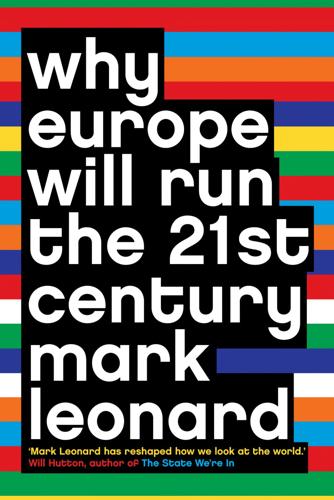
Why Europe Will Run the 21st Century
by
Mark Leonard
Published 4 Sep 2000
The other familiar figure in those tense few months was Donald Rumsfeld, the ebullient American Secretary of Defense. The former wrestling champion also promised to destroy the Iraqi will to fight: not by relying on inspections, but using ‘shock and awe’ to scare Iraqis into submission. The conflict went beyond the situation in Iraq. The two men became archetypes for different worldviews: the pyrotechnic might of the United States military was the perfect foil to the United Nation’s preference for inspections. One offered to contain the Iraqis by spectacular displays of power, the other by keeping them under constant surveillance. Unfortunately, spectacle and surveillance were just two sides of the same impotence, because both attempted to control Iraq from the outside.
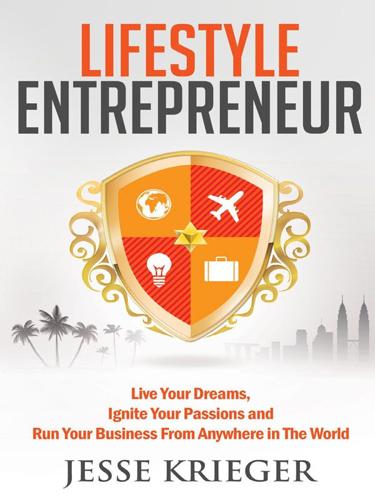
Lifestyle Entrepreneur: Live Your Dreams, Ignite Your Passions and Run Your Business From Anywhere in the World
by
Jesse Krieger
Published 2 Jun 2014
Taking inventory of your physical state includes what you do to your body and what you put in it, but also touches on what type of body you were born with. Being super tall can make people pre-disposed to say, playing basketball or needing to stretch more, while having some type of allergy or medical condition would drive a different worldview and lifestyle choices than someone without them. Finish these sentences to start shedding some light on the physical drivers that influence your identity and lifestyle choices: In order to stay healthy and in shape, every week I… When choosing what to eat and drink, I focus on… The environments and activities that make me feel energized are… The traits I was born with that influence how I interact with the world are… The physical traits I am most satisfied with are… The physical traits I am not pleased with are… To be even more healthy and fit I could focus more energy on… My Physical Identity Drivers Here are some of the physical drivers that influence and define how I interact with the world: Cycling & Gym 5x/Week — Once I got serious about getting in the best shape of my life, and started feeling the benefits of doing so, this workout regimen started to fall into place.
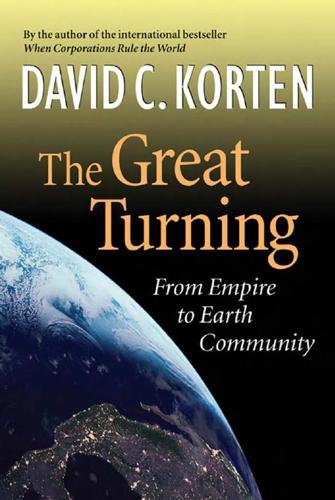
The Great Turning: From Empire to Earth Community
by
David C. Korten
Published 1 Jan 2001
Serving Different Masters Borg elaborates that the Christian Bible describes God in terms of two quite different clusters of metaphors that evoke different images and suggest quite different relationships between humans and the sacred. These metaphors spring from contrasting voices within the biblical tradition and reflect sharply different worldviews.5 One affirms the dominator 258 PART IV: THE GREAT TURNING relations of Empire and the other the partnership relations of Earth Community. The first cluster uses the familiar anthropomorphic metaphors of king, lord, and father, which evoke an image of a distant male authority figure with a physical human form to whom humans are presumed to owe unquestioning loyalty and strict obedience akin to that of a child to a traditional father, or a subject to a king.
…
What Progressives Must Learn If Earth Community is to prevail, progressives must learn to win in the arena of cultural politics. Win that struggle, and electoral and legislative victories will follow naturally. A key to success is to recognize that the different orders of human consciousness operate from different worldviews and differ in their capacities for compassion and understanding. Messages easily understood by a higher order of consciousness may seem illogical or even absurd to a lower order. Appealing to Power Seekers to recognize the moral hypocrisy of their actions is an exercise in futility, because the Imperial Consciousness 330 PART V: BIRTHING EARTH COMMUNIT Y lacks the emotional intelligence required to see itself through the eyes of the victims of its actions.
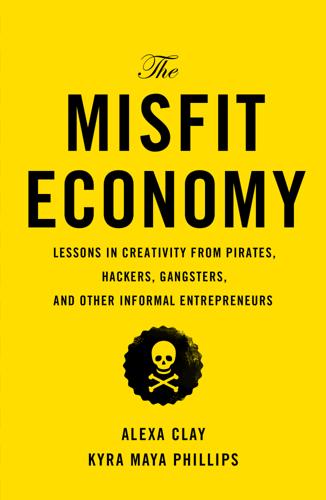
The Misfit Economy: Lessons in Creativity From Pirates, Hackers, Gangsters and Other Informal Entrepreneurs
by
Alexa Clay
and
Kyra Maya Phillips
Published 23 Jun 2015
If you switch directions, take people on the journey with you. Use language they will understand, and don’t be frustrated if they don’t get it right away. Be patient and know that any personal pivot involves ambiguity. And those unknowns can make us uncomfortable. On a personal level, it wasn’t always easy for Mack to hold these different worldviews within himself. He was uncertain how to commit himself fully to ideas that defied the training to which he had devoted his life’s work. But the daring intellect that had distinguished his scientific career made it impossible for him to turn away from work that proffered such gripping questions of human identity and cosmic reality.
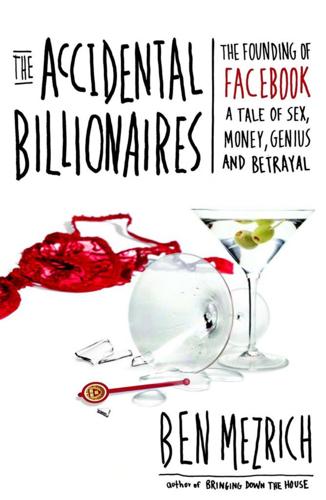
The Accidental Billionaires: The Founding of Facebook: A Tale of Sex, Money, Genius and Betrayal
by
Ben Mezrich
Published 13 Jul 2009
That’s how they would monetize Facebook, through ads. Eduardo knew it was going to be a tough sell; Mark wanted to just keep it as a fun site, not try to make any money off of it yet. But then again, he was the kid who had turned down a million bucks in high school. Who knew if he’d ever want to monetize Facebook? Eduardo had a different worldview. Facebook was costing them money. Not much, just the cost of the servers, but as more people joined in, surely those costs would go up. The thousand dollars Eduardo had put into the Web site wasn’t going to last forever. Until the company had some sort of profit model, until they could figure out how to make money off of it—it was still just a novelty.
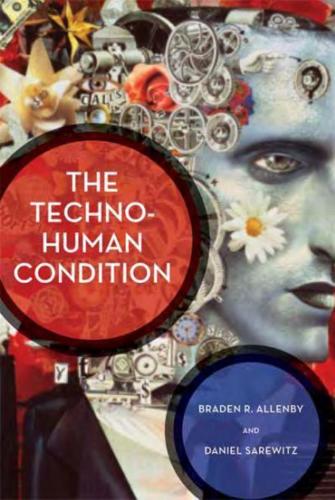
The Techno-Human Condition
by
Braden R. Allenby
and
Daniel R. Sarewitz
Published 15 Feb 2011
Some worldviews (e.g., German National Socialism and the later Maoist and Pol Pot versions of Marxism) are obviously and always unacceptable; others (e.g., the Enlightenment commitment to rational action based on evidence and induction) work well at Level I, and fairly well at Level II, where the connections among goals, technologies, and social and cultural context are often visible. 122 Chapter 6 At Level III, however, all worldviews, even the most privileged, such as the science discourse and liberal democracy, are partial, and a failure to explore different worldviews and identify appropriate options can rapidly become ineffective or even fatal. So long as the Greenland weather behaved like European weather, the Christian and European cultural worldview served the settlers well: they were in a Level I and Level II world. But when climate changed, they were thrown into a Level III situation-highly unpredictable and contingent-and failed to adjust.
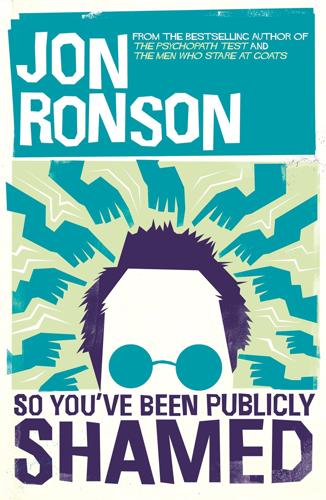
So You've Been Publicly Shamed
by
Jon Ronson
Published 9 Mar 2015
Ira: I understand that you believe that but I think you’re kidding yourself. Normal people who go to see a person talk - people take it as a literal truth. I thought that the story was literally true seeing it in the theatre. Brian, who’s seen other shows of yours, thought all of them were true. Mike: We have different worldviews on some of these things. Ira: I know. But I feel like I have the normal worldview. The normal worldview is somebody stands on stage and says ‘this happened to me,’ I think it happened to them, unless it’s clearly labelled as ‘here’s a work of fiction’. [ … ] Ira: I have such a weird mix of feelings about this.
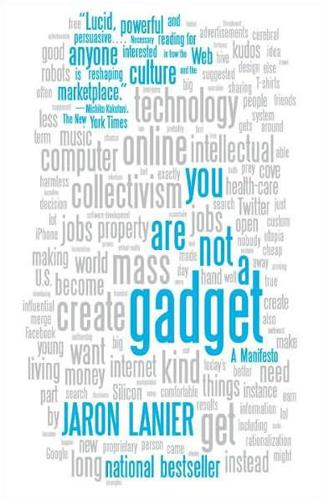
You Are Not a Gadget
by
Jaron Lanier
Published 12 Jan 2010
I also have to realize an alternative intellectual environment that is large enough to roam in. Someone who has been immersed in orthodoxy needs to experience a figure-ground reversal in order to gain perspective. This can’t come from encountering just a few heterodox thoughts, but only from a new encompassing architecture of interconnected thoughts that can engulf a person with a different worldview. So, in this book, I have spun a long tale of belief in the opposites of computationalism, the noosphere, the Singularity, web 2.0, the long tail, and all the rest. I hope the volume of my contrarianism will foster an alternative mental environment, where the exciting opportunity to start creating a new digital humanism can begin.
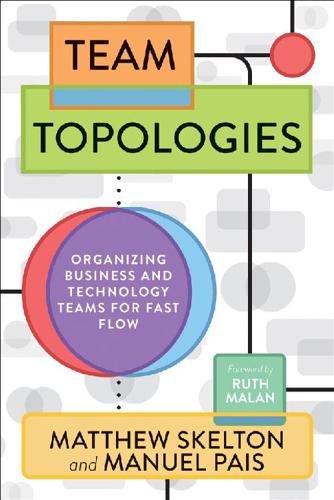
Team Topologies: Organizing Business and Technology Teams for Fast Flow
by
Matthew Skelton
and
Manuel Pais
Published 16 Sep 2019
We decided that the Platform Evolution team had to change, becoming a product team with services and support capabilities, in order to think and design the things they were working on as services to be consumed by other teams. In short, the team had to focus on features that drive value to the business. Platform Evolution became Platform Services and began to work with a very different worldview. Their mission was to provide services designed to support other teams with features and capabilities driven by their customers. In other words, Platform Services became a product-driven team. Alongside the work to break down our Chef monolith, Platform Services developed a number of customer-focused services, providing centralized value-add services to teams, including AWS integrations, build and test environments, logging platforms, and much more.
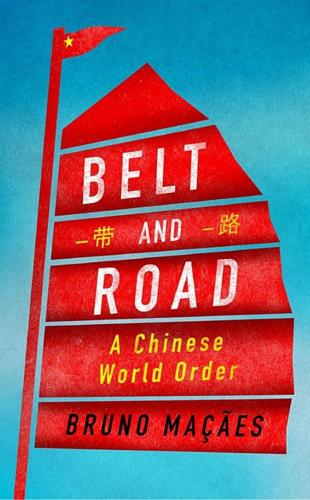
Belt and Road: A Chinese World Order
by
Bruno Maçães
Published 1 Feb 2019
As we have seen in preceding chapters, the new Chinese Tianxia may remind us of the American-led order in some important respects—a network of economic relations used to exert pressure over friendly and less friendly countries and a longterm strategy to shape their internal politics in certain directions—but it is based on a fundamentally different worldview. Modern liberalism of the kind exemplified by the American republic is neutral and mechanic. Its constitution is meant to be a system of checks and balances, capable of counteracting the follies of leaders through institutional and legal constraints. Its political and legal culture is deliberately neutral, keeping as much distance as possible from every particular vision of the good life.
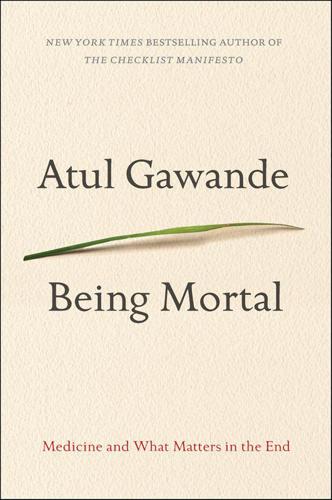
Being Mortal: Medicine and What Matters in the End
by
Atul Gawande
Published 6 Oct 2014
Others believed that, just as in anyone’s home, the animals were a responsibility that everyone should share. When you have animals, things happen, and whoever is there takes care of what needs to be done, whether it’s the nursing home director or a nurse’s aide. It was a battle over fundamentally different worldviews: Were they running an institution or providing a home? Greising worked to encourage the latter view. She helped the staff balance responsibilities. Gradually people started to accept that filling Chase with life was everyone’s task. And they did so not because of any rational set of arguments or compromises but because the effect on residents soon became impossible to ignore: the residents began to wake up and come to life.
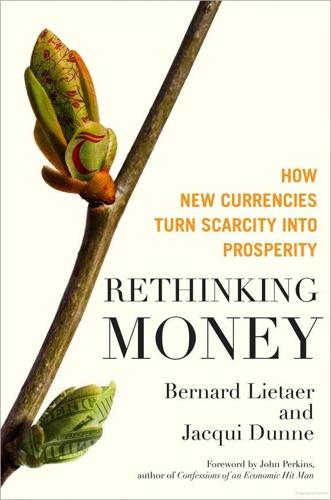
Rethinking Money: How New Currencies Turn Scarcity Into Prosperity
by
Bernard Lietaer
and
Jacqui Dunne
Published 4 Feb 2013
Did you know that the prevailing money system generates several other harmful consequences, including short-termism, compulsory growth pressure, cyclical recessions, unrelenting concentration of wealth, and erosion of social and physical or natural capital? All these factors together create a wholly unsustainable financial structure that is, indeed, disintegrating. So, how did we get here? Modern money, the type we use today, was invented in a very different time with a different worldview and another set of priorities and challenges than we have today. Money is not a product of nature, something that grows on a tree and can be harvested. Rather, modern money is a human construct that was conceived and fashioned back in the 1700s in Europe and then evolved, first in England, to become the engine for the Industrial Revolution.
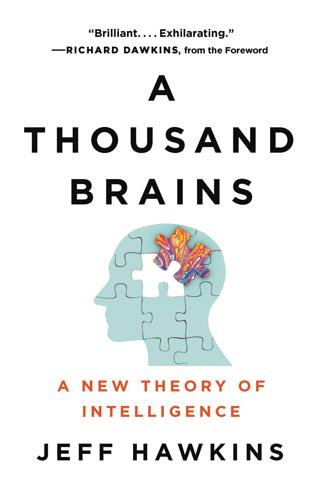
A Thousand Brains: A New Theory of Intelligence
by
Jeff Hawkins
Published 15 Nov 2021
But when thinking about concepts, two people starting with the same facts might end up with different reference frames. Recall the example of a list of historical facts. One person might arrange the facts on a timeline, and another might arrange them on a map. The same facts can lead to different models and different worldviews. Being an expert is mostly about finding a good reference frame to arrange facts and observations. Albert Einstein started with the same facts as his contemporaries. However, he found a better way to arrange them, a better reference frame, that permitted him to see analogies and make predictions that were surprising.

The Hostage's Daughter
by
Sulome Anderson
Published 24 Aug 2016
It was the first time I had ever allowed a man to see everything about me instead of just certain aspects of who I was. I was half-stunned to realize my imperfections didn’t chase him away, that he loved even the parts of me I was most ashamed of. But there was also the fact that we’d been raised with two completely different worldviews. My opposition to Israeli policies in the Middle East and his Zionist upbringing caused many clashes at the start of our relationship. But we both felt strongly that what we believed and where we came from didn’t change our human connection with each other. That June, in the midst of the 2014 Gaza War, a friend asked us to take part in a small campaign meant to promote dialogue between both sides of the conflict.
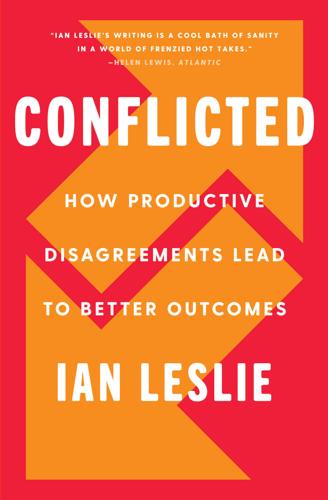
Conflicted: How Productive Disagreements Lead to Better Outcomes
by
Ian Leslie
Published 23 Feb 2021
That’s a good start, but you should make yourself aware that you have a culture too, which is hard to do if you believe your worldview is somehow not a worldview at all, but just the natural way to see things. Seeing your own culture isn’t just a challenge for professional negotiators, but for everyone who interacts with people with different worldviews to our own. We all have our own gods, which seem entirely normal where we come from. * * * When he was a graduate student in anthropology at UCLA, Joe Henrich travelled to the jungles of Peru to carry out fieldwork among the Machiguenga, a people indigenous to the Amazon basin. Henrich ran a behavioural experiment used by Western economists to test people’s instinct for fairness.
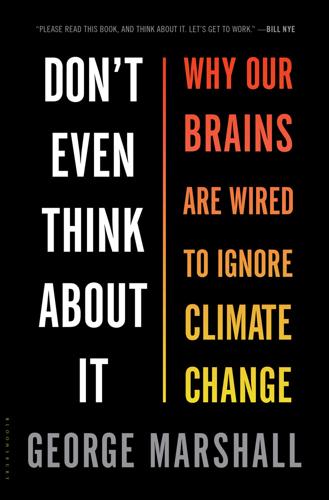
Don't Even Think About It: Why Our Brains Are Wired to Ignore Climate Change
by
George Marshall
Published 18 Aug 2014
At my Texas Tea Party meeting, Craig recalled how he challenged an environmentalist by saying, “You’re on this computer and you’re using electricity made from the coal that you claim you hate, dug out of the ground by the man who you are telling he isn’t allowed to eat meat.” He received the loudest cheer of the night. There is a deep irony in this. Research by the psychologist Jonathan Haidt into moral foundations of different worldviews found that it is conservatives who have the greatest moral emphasis on personal responsibility and that it is liberal environmentalists, with their highly individualized values, who are actually the group least suited to working together for a shared goal. It was not just conservatives—left-wing trade unionists were just as repelled.
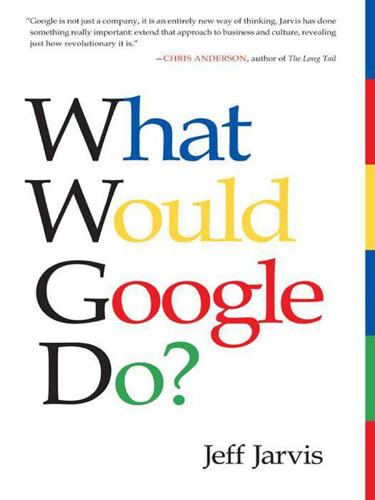
What Would Google Do?
by
Jeff Jarvis
Published 15 Feb 2009
I’m a bit unfair to Gore, for he would argue that the proceeds of his taxes would fund technology development. But Google doesn’t need tax dollars. If it were a country, its $20 billion revenue would rank it about 80th in gross domestic product. It can invest in energy research on its own. Still, we see different worldviews at work. “You can’t succeed just out of conservation because then you won’t have economic development,” Brilliant said. “Find a way to make electricity—not to cut back on it but to have more of it than you ever dreamed of.” More power than you ever dreamed of. Create and manage abundance rather than control scarcity—as ever, that is the Google worldview.
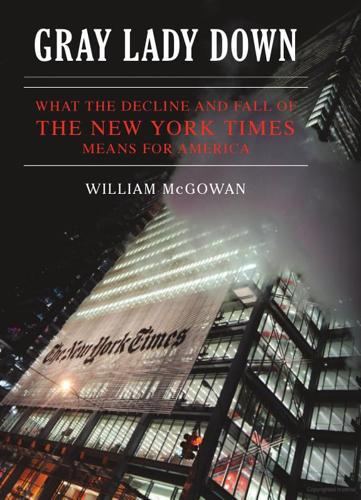
Gray Lady Down: What the Decline and Fall of the New York Times Means for America
by
William McGowan
Published 16 Nov 2010
He finished his controversial meditation: “It’s one thing to make the paper’s pages a congenial home for editorial polemicists, conceptual artists, the fashion-forward or other like-minded souls (European papers, aligned with specific political parties, have been doing it for centuries), and quite another to tell only the side of the story your co-religionists wish to hear.” For those with a different worldview from the one that dominates the Times, the paper must necessarily seem “like an alien beast.” Arthur Sulzberger Jr., the publisher, responded to a query from Okrent by saying that he preferred to call the paper’s viewpoint “urban.” The tumultuous, polyglot metropolitan environment that the Times occupies meant that “We’re less easily shocked,” Sulzberger said.
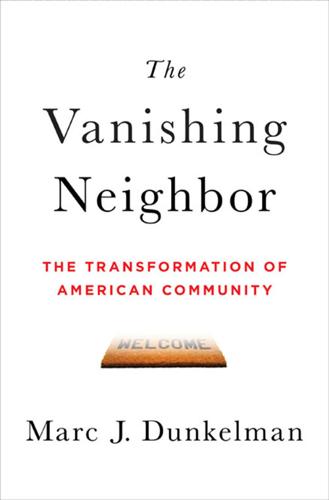
The Vanishing Neighbor: The Transformation of American Community
by
Marc J. Dunkelman
Published 3 Aug 2014
Working in conjunction with administrators at West Point, she found that that undergraduates who scored nearer the top of her grit scale were more likely to maintain high GPAs even than those who had done better on the SATs (which, broadly defined, is more commensurate with a measure of IQ).16 Moreover, the traditional measure of an undergraduate’s aptitude as a soldier—a grade known colloquially as the “Whole Candidate Score”—was less reliable than his or her grit score in predicting whether the soldier would survive “Beast Barracks,” the toughest part of a cadet’s training.17 How this notion of “character” connects to the challenge of maintaining the different sorts of relationships may not be immediately apparent. But we can infer from the evidence that grit plays an integral role in determining how we invest our time and attention. Those who aren’t able to withstand the impulse to lash out at a disagreeable acquaintance are unlikely to bond in any depth with someone who has a different worldview, if only because they’re unlikely to be able to stifle the impulse to lash out or talk back. And so, if the challenges that arise from the shift from townships to networks have been driven by our diminishing capacity to harness the strength of America’s diversity, enhancing our noncognitive skills offers the best hope we might have to encourage the formation of friendly but unintimate connections.

Please Don't Sit on My Bed in Your Outside Clothes: Essays
by
Phoebe Robinson
Published 14 Oct 2021
Truthfully, being carefree, Black, and female at home, let alone abroad, was not something I believed was possible for me because society has proved otherwise, so I never dared to dream it. And if I hadn’t started traveling in 2015, I would have continued not dreaming, accepting that all those stories, movies, and TV shows where white people go somewhere to find themselves, adventure, love, a different worldview than the one they’re used to, or simply to relax, were reminders of what I couldn’t have, of the life that I would never be allowed to live. And while Covid has put me and the rest of the world (except for the obscenely rich, who have been quietly and not-so-quietly bouncing around) on the bench, I’m looking forward to the day when I can bust out my passport once more and go to a different city to see a U2 concert.
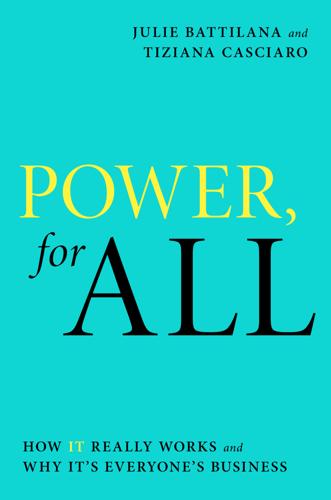
Power, for All: How It Really Works and Why It's Everyone's Business
by
Julie Battilana
and
Tiziana Casciaro
Published 30 Aug 2021
That’s why Donatella Versace, even while realizing the unique strength she could derive from the solidarity of women, was careful to maintain a healthy mix of men and women with diverse backgrounds and experiences on Versace’s Board of Directors. In fact, nearly the entire world is represented on her creative team. “I scout for designers far and wide. We have Chinese, Indian, English, Italian, American, and Filipino designers. And I love how they relate to each other. They all bring different worldviews, incredible stories, and the most fascinating conversations emerge and change our thinking,” Donatella told us. The purposeful breadth in her network gives Donatella access to her most valued resource: creativity. FINDING SIMILARITY IN UNLIKELY PLACES But, you might object, embracing diversity is easier for the decision makers at the top of the food chain like Donatella, who gets to choose who’s on her team.
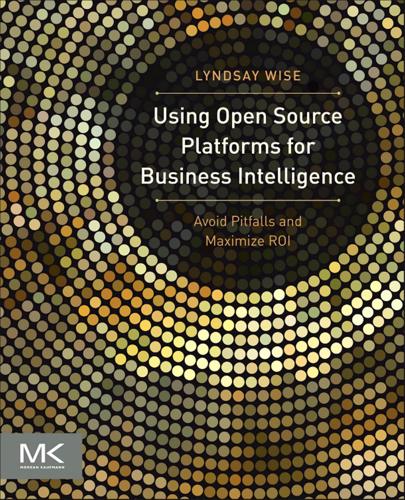
Using Open Source Platforms for Business Intelligence: Avoid Pitfalls and Maximize Roi
by
Lyndsay Wise
Published 16 Sep 2012
Companies that deal with membership may have differing views on when a membership starts. In some cases, it might be when the application is submitted, in other cases it will be when payment is received, while in others it might be when a customer is invoiced. All of these situations mean that different people within businesses have different worldviews and apply separate calculations to their work, resulting in data that is considered “manipulated” to some extent. 82 CHAPTER 8 The strategy behind BI adoption Mitigating risk Another reason organizations look at BI is to help mitigate risk. In the past, much risk management within BI remained within the realm of finance, insurance, and banking, but most organizations need to assess potential risk and help mitigate its effects on the organization.
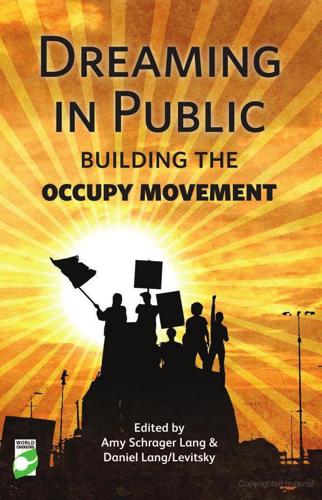
Dreaming in Public: Building the Occupy Movement
by
Amy Lang
and
Daniel Lang/levitsky
Published 11 Jun 2012
We are thankful, and rejoice, for the emergence of a movement that is mindful of its place in the environment, that seeks economic and social justice, that strives for an end to oppression in all its forms, that demands an adequate standard of food, employment, shelter and healthcare for all, and that calls for envisioning a new, respectful and honorable society. We have been waiting for 519 years for such a movement, ever since that fateful day in October 1492 when a different worldview arrived – one of greed, hierarchy, destruction and genocide. In observing the ‘Occupy Together’ expansion, we are reminded that the territories of our indigenous nations have been ‘under occupation’ for decades, if not centuries. We remind the occupants of this encampment in Denver that they are on the territories of the Cheyenne, Arapaho and Ute peoples.
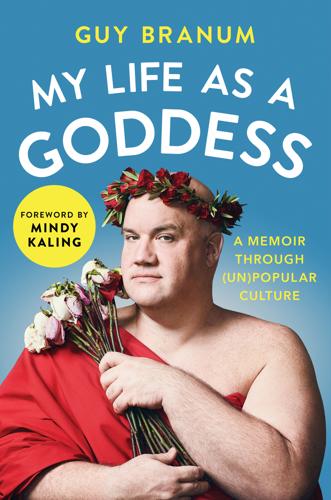
My Life as a Goddess: A Memoir Through (Un)Popular Culture
by
Guy Branum
Published 29 Jul 2018
The Man Who Shot Liberty Valance is an achingly resonant work about my relationship with my father. In 1962, my father watched and loved a film that was fundamentally about the tensions that would make communication between the two of us difficult or impossible. It is a film about two men with fundamentally different worldviews trying to cooperate and only briefly succeeding. The film begins with a frame tale. Jimmy Stewart plays Senator Ransom Stoddard (are you lethargic from the weight of western hokeyness yet?) who returns to the town of Shinbone (it will get worse), Generic Western State, with his wife, Hallie (the unsubtle Vera Miles), because Someone Very Important has died.
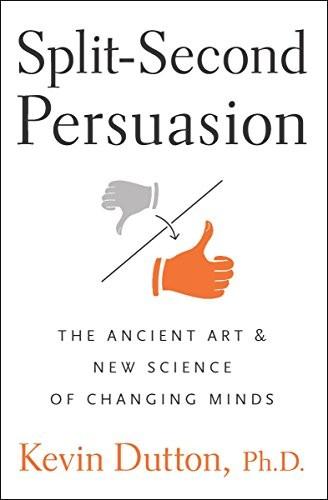
Split-Second Persuasion: The Ancient Art and New Science of Changing Minds
by
Kevin Dutton
Published 3 Feb 2011
In addition to weight of numbers, there’s a portfolio of factors that go with increased conformity. 5These, laboratory studies have shown, include: feelings of incompetence or insecurity; a group presence of at least three (additional members generate minimal increments in conformity); unanimity (the effect of even a single dissident opinion is catastrophic); admiration for the group; no prior commitments; and group surveillance of the individual: in Asch’s line study, for example, the incidence of conformity tailed off dramatically when participants, rather than indicating their opinions publicly, responded in private instead. Add to these a charismatic leader like Jim Jones, segregation from those with a different worldview (for members of the People’s Temple dissenting opinion was pretty thin on the ground in the jungle of north-west Guyana – as it was for Shehzad Tanweer in the madrasa he visited in Lahore), and an incremental induction procedure incorporating progressively larger gestures of group commitment (distributing leaflets, mentoring new members, getting involved in policy decisions: the foot-in-the-door technique, in other words) and you eventually end up with something very dangerous indeed.
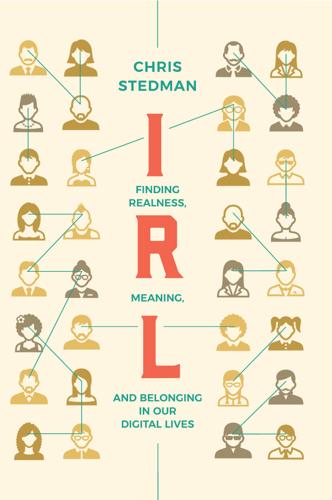
IRL: Finding Realness, Meaning, and Belonging in Our Digital Lives
by
Chris Stedman
Published 19 Oct 2020
Ties that make each component bigger than itself. Finding or creating the thread that binds things together and builds meaning out of them is one of my favorite exercises, especially when the connections are surprising or unexpected. (I mean, I wrote an entire book on the power of seeking common ground between people with different worldviews.) Because it is at the intersections where my greatest learning happens. And it is at the points of connection that we can name things; where roads come together, a town is born, and it’s given a name. Part of the appeal of things like astrology and tarot—religion, too—is that they can help us name things, often as the first step toward addressing a specific reality.

The Case for Israel
by
Alan Dershowitz
Published 31 Jul 2003
And the themes of outright Holocaust denial and blaming the Holocaust on the Jews are pervasive in the Friday sermons that are telecast by the Palestinian Authority.8 It is not surprising that two of the issues that unite the extremists on the far right and the far left are Holocaust denial and unwavering support for Palestinian terrorism. It might be difficult to imagine two more different people with more different worldviews than Patrick Buchanan, the paleoconservative, and Noam Chomsky, the radical left anarchist. Yet they both strongly support the Palestinians and hate Israel. They also have both flirted with Holocaust denial, as have many Palestinian and Arab leaders. Pat Buchanan has expressed doubts about whether Jews were gassed at Treblinka.
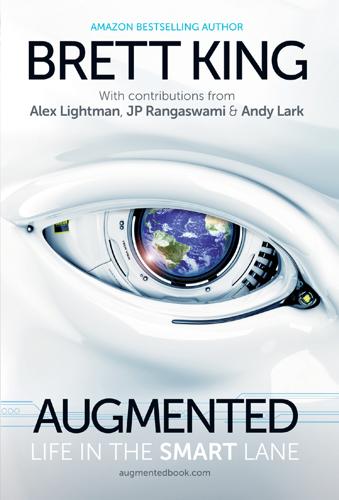
Augmented: Life in the Smart Lane
by
Brett King
Published 5 May 2016
Marshall McLuhan is credited with a great quote that aptly describes the world that the generation born post-PC and -Internet find themselves in today: “I don’t know who discovered water, but I’m pretty sure it wasn’t a fish…” Marshall McLuhan, 1966 speech Let’s think about this generation born into a world of technology. A generation that has such a different worldview of technology that Jordan Greenhall24 calls them the “Omega” generation—the last generation. Applying the Marshall McLuhan attribution, these kids who were born after 2000 don’t see technology around them as new; to them, it is just like air or water. It isn’t unique, it isn’t disruptive and it isn’t different—it’s just there.
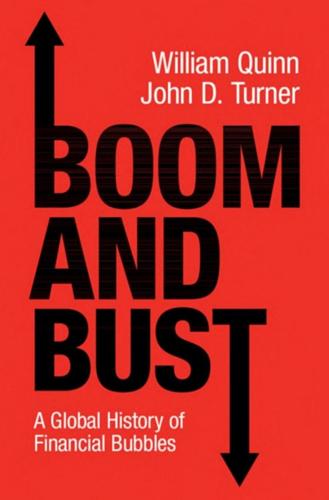
Boom and Bust: A Global History of Financial Bubbles
by
William Quinn
and
John D. Turner
Published 5 Aug 2020
Partly this is because the word ‘rational’ is so loosely defined that many common investor behaviours can be classed as either ‘rational’ or ‘irrational’, depending on the preferences of the economist.36 But more fundamentally, the framework is too reductive. Asset prices in a bubble are determined by the actions of a wide range of investors with different information, different worldviews and investment philosophies and different personalities. They often also face different incentives. Simply dividing these investors into categories labelled ‘rational’ and ‘irrational’ does not do justice to the complexity of the phenomenon, and as a result, we try to avoid these terms altogether. 11 BOOM AND BUST HISTORICAL BUBBLES We approach the historical bubbles in this book as if we were fire scene investigators, sifting through the ashes of historical bubbles in an effort to understand their causes.

The Norm Chronicles
by
Michael Blastland
Published 14 Oct 2013
Even if you think you don’t take these sides, and certainly not so crudely, you might take them over danger. It touches something deep in our attitude to life; it helps define what kind of people we are. Sometimes we embody both sides and are torn by contrary impulses as the struggles between different world-views – sometimes the numbers, sometimes the stories and emotions – ebb and flow as we try to work out how to live. Beside such weighty stuff, the fact that danger might also strangle us with a blind cord, poison us with salmonella or blow us to bits seems almost by the way. Here’s a quick illustration.

The New Jim Crow: Mass Incarceration in the Age of Colorblindness
by
Michelle Alexander
Published 24 Nov 2011
My husband, Carter Stewart, has been my rock. Without ever once uttering a word of complaint, he has read and reread drafts and rearranged his schedule countless times to care for our children, so that I could make progress with my writing. As a federal prosecutor, he does not share my views about the criminal justice system, but his different worldview has not, even for a moment, compromised his ability to support me, lovingly, at every turn in my efforts to share my truth. I made the best decision of my life when I married him. My mother and sister, too, have been blessings in my life. Determined to ensure that I actually finished this book, they have exhausted themselves chasing after the little people in my home, who are bundles of joy (and more than a little tiring).
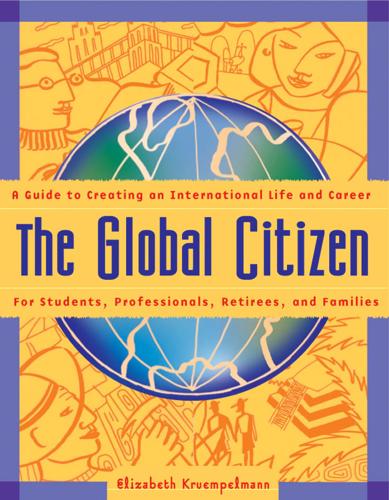
The Global Citizen: A Guide to Creating an International Life and Career
by
Elizabeth Kruempelmann
Published 14 Jul 2002
G LOBAL R OUTES www.globalroutes.org 1814 7th Street, Suite A Berkeley, CA 94710 Phone: 510-848-4800 Fax: 510-848-4801 192 CHAPTER SIX Global Routes offers teaching and community service project internships in Asia, Africa, Central America, and United States for students ages seventeen and older. Programs are best suited for people who have a passion for adventure, contribution, cross-cultural immersion, and personal growth. The goal of the program is to bring people with different worldviews together to create a global community. Global Routes interns are assigned to remote villages in pairs, where they’ll teach in local schools and complete at least one community service project. Interns generally teach English, math, science, environmental education, or health, and may also choose to coach soccer, volleyball, basketball, or debate; direct plays or choir; teach guitar, martial arts, or a craft; or initiate a dance troupe or poetry club.
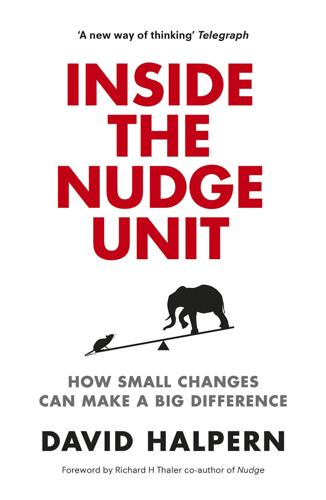
Inside the Nudge Unit: How Small Changes Can Make a Big Difference
by
David Halpern
Published 26 Aug 2015
The more senior of the Ministers grinned at me, then scanned the table. ‘We have an agreement, then?’ he declared. We did indeed – and something much more. We had moved into a world where Ministers begin to know the merits of a controlled trial, and demand it of their officials. It is a very different worldview from the brash self-confidence of conventional politics, and falsely confident professional practice, that we have become used to. But it is a worldview that brings results, and will probably be the most important legacy of the quirky empiricism that BIT brought to the heart of British government in 2010, and is now spreading through the world.
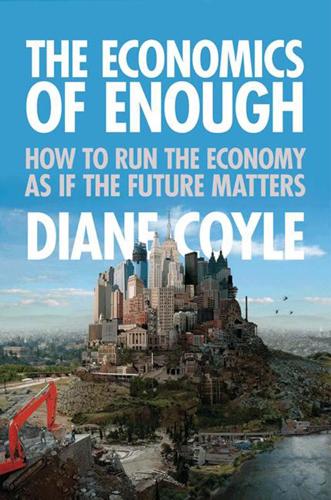
The Economics of Enough: How to Run the Economy as if the Future Matters
by
Diane Coyle
Published 21 Feb 2011
There would be no pressure to evolve social constraints or moral tendencies.”11 However, as we are social and do depend on each other, we have evolved to be moral. Moral views vary greatly for different people—in any conflict each party thinks it has right on its side, and in some conflicts the contenders have entirely different worldviews about right and wrong—but there are also a few moral universals. Prominent among these is a sense of fairness. Moral sentiments such as fairness and reciprocity are common to all primates; some add to these fundamental instincts the social pressures that favor a cooperative group life through punishment and reward.
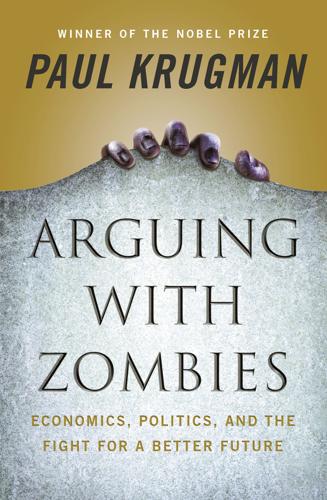
Arguing With Zombies: Economics, Politics, and the Fight for a Better Future
by
Paul Krugman
Published 28 Jan 2020
The fact that such things continued to happen in the real world—there was a terrible financial and macroeconomic crisis in much of Asia in 1997–1998 and a depression-level slump in Argentina in 2002—wasn’t reflected in the mainstream of New Keynesian thinking. Even so, you might have thought that the differing worldviews of freshwater and saltwater economists would have put them constantly at loggerheads over economic policy. Somewhat surprisingly, however, between around 1985 and 2007 the disputes between freshwater and saltwater economists were mainly about theory, not action. The reason, I believe, is that New Keynesians, unlike the original Keynesians, didn’t think fiscal policy—changes in government spending or taxes—was needed to fight recessions.
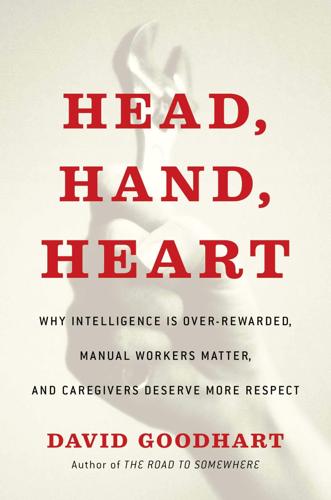
Head, Hand, Heart: Why Intelligence Is Over-Rewarded, Manual Workers Matter, and Caregivers Deserve More Respect
by
David Goodhart
Published 7 Sep 2020
Had this prevented me from paying attention to the other things that matter: close friendships, meaningful conversations with my children, an absorbing hobby, volunteering in my community, making more effort to see myself as others see me? At the same time that I was thrown off balance emotionally, I happened to be reading Iain McGilchrist’s remarkable book The Master and His Emissary: The Divided Brain and the Making of the Western World, about the radically different worldviews of the left and right brain hemispheres.2 “The hidden story of Western culture, as told by the author, is about how the abstract, instrumental, articulate, and assured left hemisphere has gradually usurped the more contextual, humane, systemic, holistic but relatively tentative and inarticulate right hemisphere,” as the philosopher Jonathan Rowson sums it up.3 We live in a left-brain, Head world.
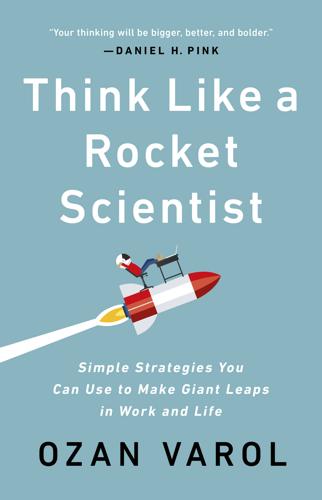
Think Like a Rocket Scientist: Simple Strategies You Can Use to Make Giant Leaps in Work and Life
by
Ozan Varol
Published 13 Apr 2020
They’re Doing It This Way We’re genetically programmed to follow the herd. Thousands of years ago, conformity to our tribe was essential to our survival. If we didn’t conform, we would be ostracized, rejected, or, worse, left for dead. In the modern world, most of us yearn to stand out from the herd. We believe we have distinct tastes and a different worldview than does the general population. We might admit interest in other people’s choices, but we would argue that our decisions are our own. The research shows otherwise. In one representative study, participants were quizzed about a documentary they watched: “How many policemen were there when the woman got arrested?
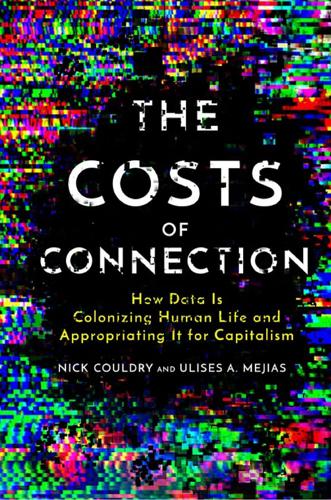
The Costs of Connection: How Data Is Colonizing Human Life and Appropriating It for Capitalism
by
Nick Couldry
and
Ulises A. Mejias
Published 19 Aug 2019
In essence, creating counterpresents implies engaging in media practices that question how notions of “progress,” “civilization,” or “innovation” are equated with data relations as conceptualized by corporate interests. Creating counterpresents would also mean reclaiming the agency of the colonized data subject. The colonial project granted subjecthood to dominated individuals, but it did not grant them equality.95 Counterpresents would allow the subjects of data colonialism to imagine a different worldview in which they can locate themselves as fully autonomous actors, beyond data’s “horizon of totality”96 and with a fully recognized right to challenge the progress of data colonialism. An important reason for undertaking all of this urgently is that data colonialism is a period of transition.

The Iron Cage: The Story of the Palestinian Struggle for Statehood
by
Rashid Khalidi
Published 31 Aug 2006
In this respect, the Palestinians anticipated similar processes that affected Syria, Egypt, and Iraq after each country went through revolutionary social upheavals in the 1950s and 1960s. In the Palestinian case, it meant the eclipse of the old political class and the rise of an entirely new generation of activists from new social strata, and with a different educational background, a different worldview, and entirely different solutions to the problems of Palestine and the Palestinian people. This new generation operated in the conditions of extreme dispersion and fragmentation that characterized Palestinian society after 1948. Divided between Israel, the West and East Banks of Jordan, and the Gaza Strip, and with others in camps in Lebanon and Syria, or even farther afield in Iraq and Egypt, a segment of the Palestinian population lived in refugee camps, while some inside Israel, in the West Bank and the Gaza Strip, remained in their homes.
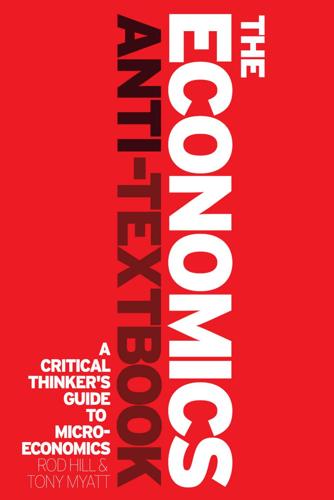
The Economics Anti-Textbook: A Critical Thinker's Guide to Microeconomics
by
Rod Hill
and
Anthony Myatt
Published 15 Mar 2010
Similarly, the lack of attention paid to the distribution of income among households and to its equity serves to legitimize existing inequalities. If these issues merit only a few pages towards the end of a large textbook, how can they be that important? The same ideological position is not present in all economic paradigms. Different paradigms contain different world-views. But textbooks don’t bother teaching students about how the paradigms reflect world-views, nor do they bother teaching students anything other than one world-view that comes out of the dominant neoclassical paradigm. Indeed, ‘economics’ has come to be synonymous with the economics of a particular view of capitalism.
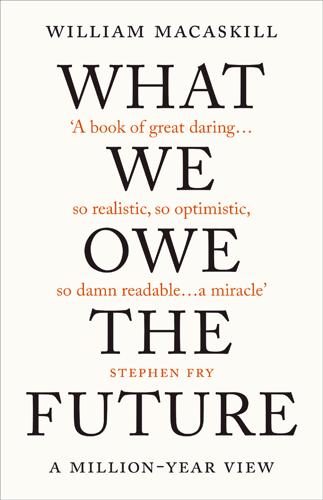
What We Owe the Future: A Million-Year View
by
William MacAskill
Published 31 Aug 2022
That is, over time, and with the enormous scientific and technological advances that the future might bring, including advances in the ability to reflect and reason with one another, everyone might have converged on a vision of what the best possible future is like and then put it into practice. Second, even without moral convergence, people might have worked out their own visions of what a good life and good society consists of and cooperated and traded in order to build a society that is sufficiently good for everyone. The resulting society would be a compromise among different worldviews in which everyone gets most of what they want. Even if no one has a positive moral vision at all but just wants what’s best for them, this could still result in a very good world. In a world where communication, trade, and compromise are easy and technology is extremely advanced, most people could get most of what they want.
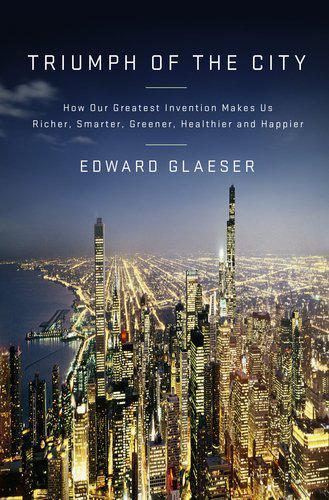
Triumph of the City: How Our Greatest Invention Makes Us Richer, Smarter, Greener, Healthier, and Happier
by
Edward L. Glaeser
Published 1 Jan 2011
In the United States, it includes the bird watchers of the Audubon Society and the activists of Greenpeace, the hikers of the Appalachian Trail and the drivers of Toyota hybrids. In Europe, the movement is even more successful and even broader. Any movement that diverse and that successful will inevitably attract individuals with wildly different worldviews, such as His Royal Highness, the Prince of Wales, and “Red” Ken Livingstone, the erstwhile Labour Party politician, who led London, first as head of the Greater London Council between 1981 and 1986 and then as London’s first citywide mayor from 2000 to 2008. Livingstone has said that “climate change caused by CO2 emissions” is “the single biggest problem facing humanity”; Prince Charles has declared climate change to be the “greatest threat to mankind.”
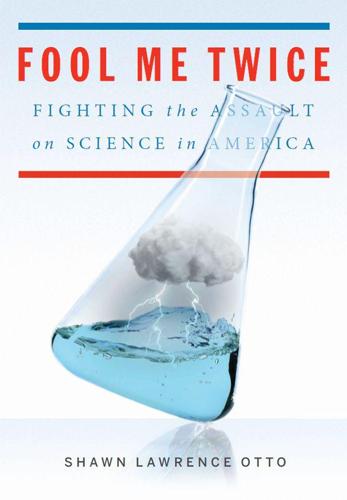
Fool Me Twice: Fighting the Assault on Science in America
by
Shawn Lawrence Otto
Published 10 Oct 2011
The “inquisition tyrannies” of the church’s crackdown in response to Galileo had “dampened the glory of Italian wits; that nothing had been there written, now these many years, but flattery and fustian.”10 By the end of the seventeenth century, as Anglican clergy in London were preaching Newton’s science, Italian scientists were standing trial in Naples for stating “that there had been men before Adam composed of atoms equal to those of other animals.”11 THE DNA OF WESTERN THOUGHT Each arm of this double helix of Western Christianity—Roman Catholicism and the emerging Protestantism—embodied the two distinctly different worldviews of the authoritarian and the antiauthori-tarian: that rules and methods were either proscribed from on high or built up by individuals in consensus. These two views had always been present, but they were greatly amplified in 1517, when Martin Luther posted his Ninety-Five Theses* challenging church authorities to debate principles that seemed defensible only by virtue of the church’s authority over its subjects.
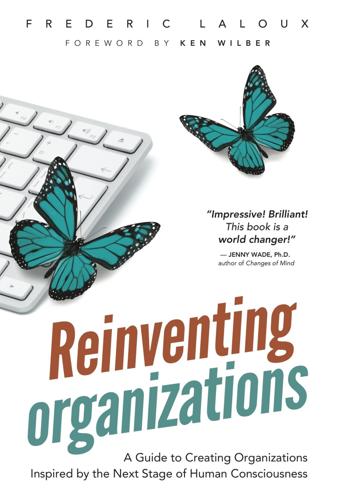
Reinventing Organizations: A Guide to Creating Organizations Inspired by the Next Stage of Human Consciousness
by
Frederic Laloux
and
Ken Wilber
Published 9 Feb 2014
— Part 2 — The Structures, Practices, and Cultures of Teal Organizations Chapter 2.1 THREE BREAKTHROUGHS AND A METAPHOR Nothing is as powerful as an idea whose time has come. Victor Hugo Up to this point in history, humanity has experienced four ways to collaborate in organizational settings, based on four very different worldviews: Impulsive-Red, Conformist-Amber, Achievement-Orange, and Pluralistic-Green. Each of these organizational models has brought about major breakthroughs, and allowed us to tackle more complex problems and achieve results of unprecedented scale. As more people engage with the world from an Evolutionary-Teal perspective, it’s fair to assume that more Teal Organizations will start to arise.
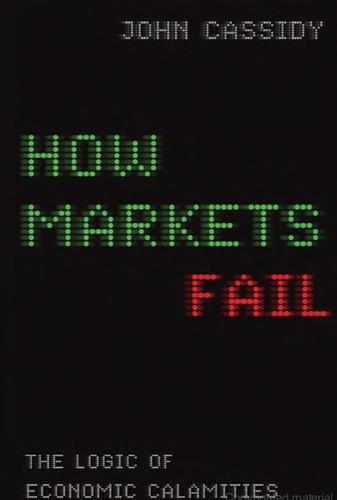
How Markets Fail: The Logic of Economic Calamities
by
John Cassidy
Published 10 Nov 2009
During his time as Fed chairman, the early years of which were largely taken up with fighting inflation, “Tall Paul”—he is six foot seven—consistently opposed efforts by the White House and Congress to weaken financial regulations. But in 1987, Volcker retired from the Fed and was succeeded by a fellow New Yorker who had a very different worldview. PART THREE THE GREAT CRUNCH 17. GREENSPAN SHRUGS Speculative bubbles present an extreme case of the financially driven boom and bust cycles that Minsky identified. Citing his influence, the late economic historian Charles P. Kindleberger, who taught at MIT for many years, divided the evolution of a typical bubble into five stages: displacement, boom, euphoria, peak, and bust.
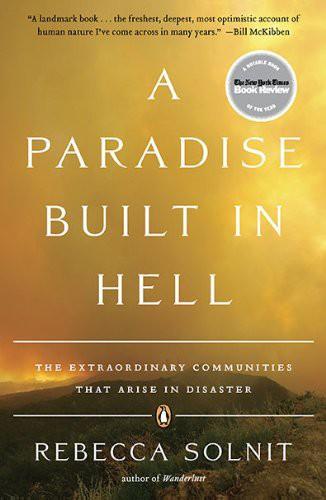
A Paradise Built in Hell: Extraordinary Communities That Arise in Disaster
by
Rebecca Solnit
Published 31 Aug 2010
Subsequent researchers have combed the evidence as meticulously—in one case examining the behavior of two thousand people in more than nine hundred fires—and concluded that the behavior was mostly rational, sometimes altruistic, and never about the beast within when the thin veneer of civilization is peeled off. Except in the movies and the popular imagination. And in the media. And in some remaining disaster plans. A different worldview could emerge from this. Heroes are necessary because the rest of us are awful—selfish or malicious or boiling over with emotion and utterly unclear on what to do or too frightened to do it. Our awfulness requires and produces their won derfulness, a dull, drab background against which they shine.
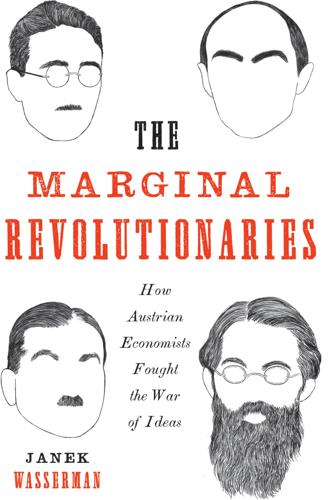
The Marginal Revolutionaries: How Austrian Economists Fought the War of Ideas
by
Janek Wasserman
Published 23 Sep 2019
Keynes, who had been working with the Liberal Lloyd George on a massive public employment scheme, could not countenance this perceived assault. Keynes covered his copy of Hayek’s review in annotations before firing off an ill-tempered rejoinder to Economica.28 Keynes saw their disagreement as a product of different worldviews more than one of economic theory. The divergence centered on their respective interpretations of the economic crisis. According to Keynes, Hayek believed that disequilibrium between savings and investment could be avoided if the quantity of money remained neutral. It was best to allow the economy to work through its fluctuations without any interference.
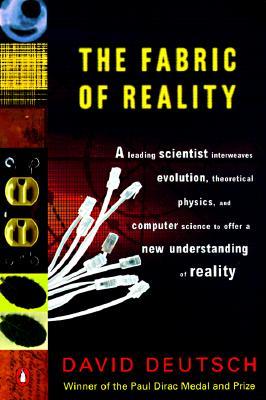
The Fabric of Reality
by
David Deutsch
Published 31 Mar 2012
If a theory with the properties he hopes for does eventually supersede quantum theory or general relativity, or both, whether through experimental testing or by providing a deeper level of explanation, then every reasonable person would want to adopt it. And then we would embark on the adventure of comprehending the new world-view that the theory's explanatory structures would compel us to adopt. It is likely that this would be a very different world-view from the one I am presenting in this book. However, even if all this came to pass, I am nevertheless at a loss to see how the theory's original motivation, that of explaining our ability to grasp new mathematical proofs, could possibly be satisfied. The fact would remain that, now and throughout history, great mathematicians have had different, conflicting intuitions about the validity of various methods of proof.
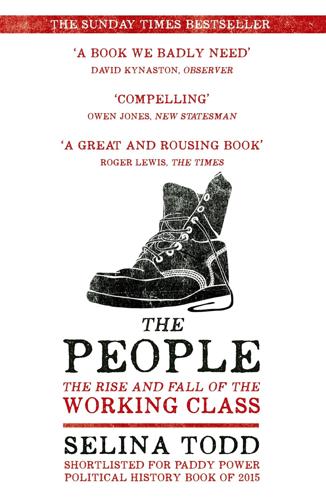
The People: The Rise and Fall of the Working Class, 1910-2010
by
Selina Todd
Published 9 Apr 2014
In fighting for a living wage, they and others like them also ensured that a generation of working-class people had the money to buy the new wirelesses, cosmetics, clothes and foodstuffs that they made each day on the production lines. Most importantly, in an age when political ‘common sense’ presented the ballot box as the agent of change, strikers as dangerous militants or fecklessly frivolous, and an ever faster assembly line as the only route out of economic depression, these workers offered a different worldview. The Bedaux system symbolized a new form of factory production, a new approach to work that these workers opposed. They suggested that there were some things more important than speed, productivity and profit. Asked by the Leicester Evening Mail to justify her opposition to the Bedaux system, one young Wolsey worker said simply, ‘It is inhuman.’12 As the 1930s wore on, similar disputes erupted in other industries.
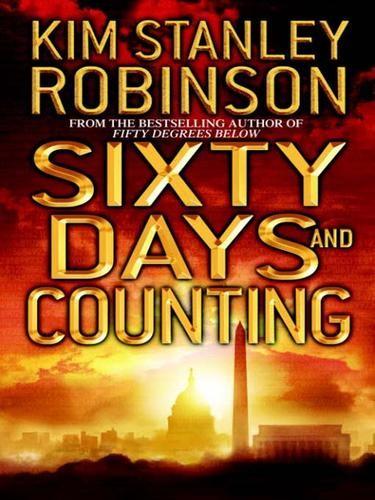
Sixty Days and Counting
by
Kim Stanley Robinson
Published 27 Feb 2007
The IPCC had spent many years advocating action on the climate front, and all the while they had been flatly ignored by the World Bank. If there was now a face-off, a great reckoning in a little room, then it could get interesting. But the meeting, held across the street in the World Bank’s headquarters, was a disappointment. These two groups came from such different world-views that it was only an illusion they were speaking the same language; for the most part they used different vocabularies, and when by chance they used the same words, they meant different things by them. They were aware at some level of this underlying conflict, but could not address it; and so everyone was tense, with old grievances unsayable and yet fully present.

How Everything Became War and the Military Became Everything: Tales From the Pentagon
by
Rosa Brooks
Published 8 Aug 2016
In a recent study of Army personnel, for instance, Jason Dempsey, an Army lieutenant colonel and veteran of West Point’s social science faculty, found that “on the whole, military opinions tend to parallel civilian opinions.” Older officers tended to be more conservative than younger officers and enlisted personnel, but political labels turned out to be poor predictors of views on particular issues. Overall, Dempsey concluded, “the idea that service members have a distinctly different worldview. . . [that is] conservative and dramatically out of step with the rest of society—is a myth that must be constantly debunked.”11 Geographically, the South, Southwest, and the mountain states are overrepresented within the military, while Northeastern states are underrepresented, relative to their overall populations.12 But while this is often assumed to be a product of regional ideology—with “red” states being more “pro-military” than “blue” states—here too the reality is more complex.
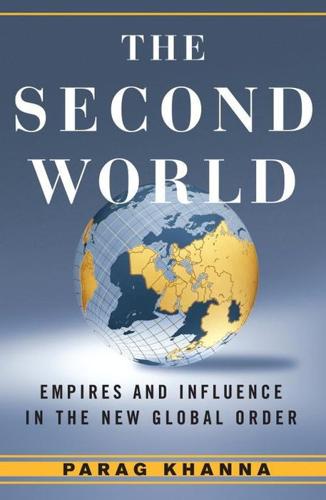
Second World: Empires and Influence in the New Global Order
by
Parag Khanna
Published 4 Mar 2008
Almost a century ago, World War I was triggered by false assumptions and misunderstandings among European powers that had much in common: history, culture, geographic space, economic ties, and (for the most part) liberal political tradition. Today, the United States, the EU, and China have very little of this going for them. They do not have culture in common, nor do they share the same geographic space, nor are they all democratic. What, if anything, can prevent World War III in a world of superpowers with such drastically different worldviews, motivations, and forms of power at their disposal? If the twentieth century was what Isaiah Berlin called “the most terrible century in western history,” what will make the twenty-first century any different? Today only one force has emerged that could grind the cyclical wheels of global conflict to a halt: globalization.21 Like geopolitics, globalization has become the world system itself.
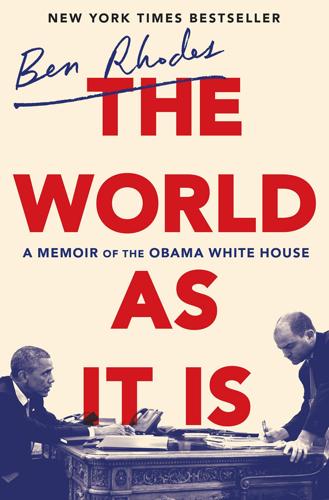
The World as It Is: A Memoir of the Obama White House
by
Ben Rhodes
Published 4 Jun 2018
We both act as if we don’t care what other people think about us, but we do. Yet these similarities form only a small part of a broader picture—a reality in which I was a junior partner who worked hard to understand what my boss wanted to say and do in the world. Barack Obama came to office with a different worldview from those of his predecessors and the type of (largely white male) people who serve in elevated national security positions—one that encompasses the complexities of U.S. foreign policy. He was born in Hawaii, a former U.S. colony that hosts America’s Pacific fleet, nurtures a diverse citizenry, and serves as a bridge between the Americanized Pacific and East Asia.

Bibi: The Turbulent Life and Times of Benjamin Netanyahu
by
Anshel Pfeffer
Published 30 Apr 2018
Or was Netanyahu prepared to be fired in the hope that it would create the ideal circumstances for his entrance to politics? As it turned out, he got off with a light reprimand. Under the Labor-Likud national unity government, Israeli foreign policy was run simultaneously by two leaders with very different worldviews. The result was four years of diplomatic paralysis as Shamir vetoed any effort by Peres to launch new peace initiatives. For opportunist diplomats stationed abroad, it meant a large degree of freedom. In October 1986, “the rotation” took place. Shamir returned to the prime minister’s office, and Peres became foreign minister.
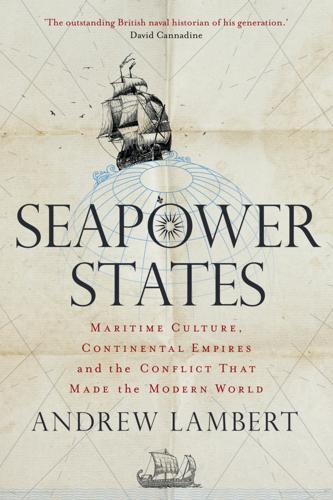
Seapower States: Maritime Culture, Continental Empires and the Conflict That Made the Modern World
by
Andrew Lambert
Published 1 Oct 2018
Nowhere was this process more significant than in the new seapowers, as they faced new versions of Roman imperium, be it Ottoman Turkey, Habsburg Spain, Bourbon France or Petrine Russia, while the French Revolution and the Napoleonic Empire brought the whole process full circle – as the self-styled new Rome consciously set out to annihilate the modern Carthage. While the wars between Rome and Carthage are often represented as a contest for dominion over the known world, in reality the two states fought for very different worldviews. The Romans sought more land, wealth, power and control. By contrast, seapower Carthage sought a stable, balanced world in which it could secure trade routes and profit from an expanding Mediterranean economy. When the Roman command economy threatened their ‘informal empire’ of trade, the Carthaginians were prepared to resist, despite the obvious disparity of means and methods.
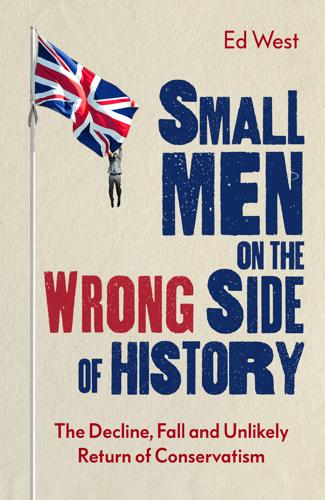
Small Men on the Wrong Side of History: The Decline, Fall and Unlikely Return of Conservatism
by
Ed West
Published 19 Mar 2020
It’s a basic principle of liberalism that Church and state should remain separate, which requires that the Church should not make laws, but also that the state should not seek to become arbiter of morals either. More importantly, the whole point of liberalism was that it was the only way in which lots of people with different worldviews could rub along, by agreeing to disagree. Now that we had hugely variant worldviews it seemed more necessary than ever, but instead we had equality activists harassing people they disagreed with, because they were strong and their opponents were weak. And, most tellingly, few people seemed to care. 18 THE RIGHT SIDE OF HISTORY It used to be said that as you get older you get more Right-wing.
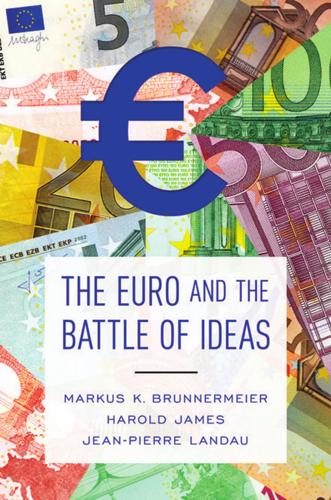
The Euro and the Battle of Ideas
by
Markus K. Brunnermeier
,
Harold James
and
Jean-Pierre Landau
Published 3 Aug 2016
But the Europeans’ idea in calling in the Fund was precisely to find a substitute for the lacking consensus about economic reform. As an international economic policy think tank (as well as a funding organization), it was inevitable that the IMF was a principal forum in which the disagreements between the different worldviews would be fought out. It had always had a strong orientation toward Europe and a particularly close relationship with French policy making. Meanwhile, Germans often complained that the structure and training of their civil service made it difficult to get high-level representation in international institutions, including the IMF.

Leviathan Wakes
by
James S. A. Corey
Published 14 Jun 2011
It was in his voice and the way he talked about things, you know? As for the horror feel, that’s just the way I roll. I’ve never written anything in my life that didn’t at least blur the line into horror. If I wrote greeting cards, they’d probably have a squick factor. Leviathan Wakes has two protagonists with very different worldviews, which are often in conflict. Can you describe those views and why you chose that particular conflict? You know how they say science fiction is about the future you’re writing about, but it’s also about the time you’re writing in? Holden and Miller have got two different views on the ethical use of information.
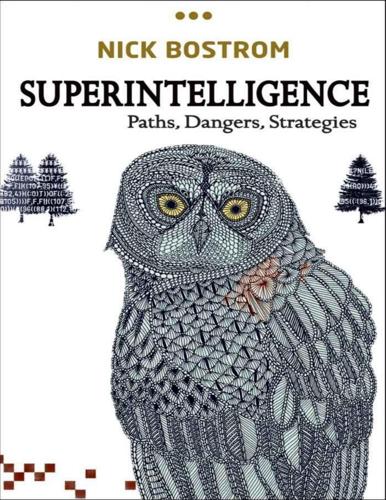
Superintelligence: Paths, Dangers, Strategies
by
Nick Bostrom
Published 3 Jun 2014
There is also a deeper ground for the irenic potential of CEV, namely that it enables many different groups to hope that their preferred vision of the future will prevail totally. Imagine a member of the Afghan Taliban debating with a member of the Swedish Humanist Association. The two have very different worldviews, and what is a utopia for one might be a dystopia for the other. Nor might either be thrilled by any compromise position, such as permitting girls to receive an education but only up to ninth grade, or permitting Swedish girls to be educated but Afghan girls not. However, both the Taliban and the Humanist might be able to endorse the principle that the future should be determined by humanity’s CEV.
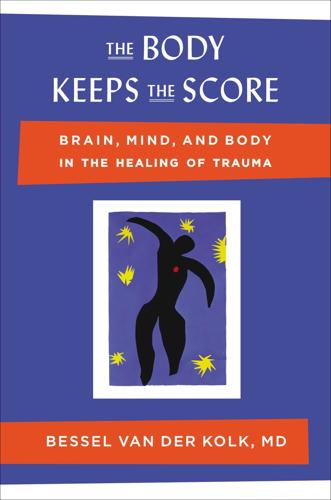
The Body Keeps the Score: Brain, Mind, and Body in the Healing of Trauma
by
Bessel van Der Kolk M. D.
Published 7 Sep 2015
Instead, their medical records were filled with diagnostic labels: “conduct disorder” or “oppositional defiant disorder” for the angry and rebellious kids; or “bipolar disorder.” ADHD was a “comorbid” diagnosis for almost all. Was the underlying trauma being obscured by this blizzard of diagnoses? Now we faced two big challenges. One was to learn whether the different worldview of normal children could account for their resilience and, on a deeper level, how each child actually creates her map of the world. The other, equally crucial, question was: Is it possible to help the minds and brains of brutalized children to redraw their inner maps and incorporate a sense of trust and confidence in the future?
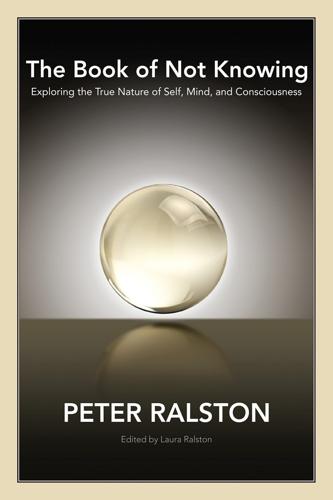
The Book of Not Knowing: Exploring the True Nature of Self, Mind, and Consciousness
by
Peter Ralston
Published 30 Aug 2010
We wear a different “hat” at work than we do at home or in our other relationships. A person can be quite different as an employee or boss than he is as a spouse or sibling. This adjustment to our various roles is not simply a matter of altering expression. It involves feeling differently, thinking differently, having a different self-image and perhaps even a different worldview. Remember that in our definition of false we find, “erected temporarily.” Anything created to serve some end is not what is already and genuinely ourselves. 7:14 Accommodating our changing roles by adopting different “hats” is only one area in which our self-concepts reveal traits and experiences that are clearly adopted to serve a purpose.
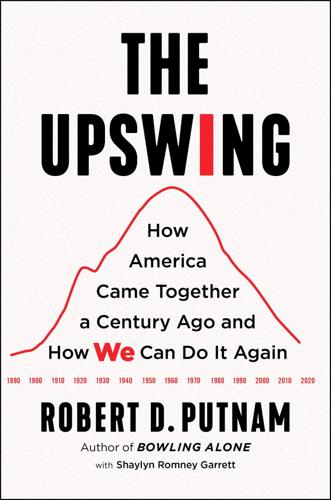
The Upswing: How America Came Together a Century Ago and How We Can Do It Again
by
Robert D. Putnam
Published 12 Oct 2020
Drawing on their best-seller How Democracies Die, political scientists Steven Levitsky and Daniel Ziblatt have expressed this concern most cogently: FIGURE 3.10: POLITICAL EFFICACY VS. POLITICAL CYNICISM, 1952–2016 Source: American National Election Studies; Harris Poll. Data LOESS smoothed: .15. When societies divide into partisan camps with profoundly different worldviews, and when those differences are viewed as existential and irreconcilable, political rivalry can devolve into partisan hatred. Parties come to view each other not as legitimate rivals, but as dangerous enemies. Losing ceases to be an accepted part of the political process and instead becomes a catastrophe.112 So what have we learned about polarization in this chapter?

This Is Service Design Doing: Applying Service Design Thinking in the Real World: A Practitioners' Handbook
by
Marc Stickdorn
,
Markus Edgar Hormess
,
Adam Lawrence
and
Jakob Schneider
Published 12 Jan 2018
In sharing my message in over 25 countries to date, I discovered that I am a passionate advocate that companies become more compassionate to avoid problems altogether, and I enjoy teaching others how to become more effective storytellers in today’s frenetic and noisy environment. So, put a cross-functional team in a room together, and where should they start? Usually the basic tool of such cooperative attempts is the meeting, and the teams are faced with the colossal task of reconciling different worldviews and different terminologies by basically talking about it. It is no wonder that cross-functional cooperation is extraordinarily difficult, as each delegate honestly argues for his own point of view using his own specialized language. How can we make it easier for these people to cooperate and create new value together, so that each department sees the results as its own and is invested in their success?
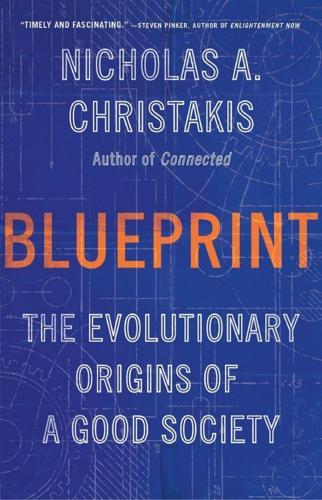
Blueprint: The Evolutionary Origins of a Good Society
by
Nicholas A. Christakis
Published 26 Mar 2019
The positivist stance that social phenomena are scientifically intelligible was first advanced in modern times in the middle of the nineteenth century by philosopher Auguste Comte.30 Around the same time, Émile Durkheim, one of the founders of sociology, was also making the case for positivism.31 His approach to social phenomena stressed that they were, after all, a part of the natural world and so could be approached via a scientific method stressing objectivity and rationality. But the debate about how to understand social life has ancient roots and can be traced at least as far back as Plato, who analyzed the differing worldviews of poetry and philosophy (which was at the time an approximation of science).32 Echoes of this debate are still heard today in the endless dialogue between the humanities and the sciences regarding how the world may best be comprehended. Some thinkers argue that the internal states of humans cannot be examined scientifically at all and must instead be understood nonscientifically via intuitive, interpretative, or even religious methods.

The Zionist Ideas: Visions for the Jewish Homeland—Then, Now, Tomorrow
by
Gil Troy
Published 14 Apr 2018
The Israeli nation must live a full moral life within a political framework. Through the State of Israel, we have the ability to serve as a model that will instill a new consciousness within the nations of the world that will help humanity resolve most of the major spiritual problems of our times. The central conflict today is the clash between different worldviews. This is the root of the controversy between Islam and the West: modernization versus tradition; the individual versus the community; science versus religion and the moral relativism of the Western world versus the totalitarian beliefs of the Islamic world. Israel is at the heart of this storm, both geographically and spiritually. . . .
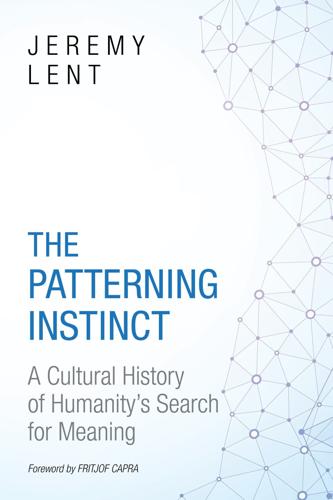
The Patterning Instinct: A Cultural History of Humanity's Search for Meaning
by
Jeremy Lent
Published 22 May 2017
This is our worldview, which often remains unquestioned and unstated but is deeply felt and underlies many of the choices we make in our lives. We form our worldview implicitly as we grow up, from our family, friends, and culture, and, once it's set, we're barely aware of it unless we're presented with a different worldview for comparison. The unconscious origin of our worldview makes it quite inflexible. That's fine when it's working for us. But suppose our worldview is causing us to act collectively in ways that could undermine humanity's future? Then it would be valuable to become more conscious of it.2 We can think of a society's worldview like a building that's been constructed layer by layer over older constructions put together by generations past.
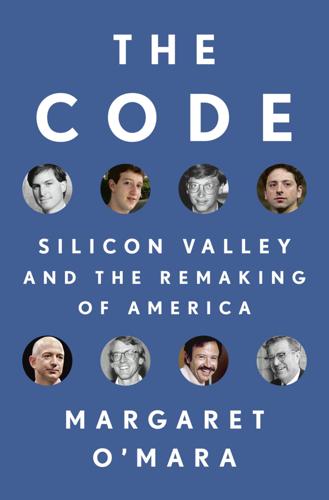
The Code: Silicon Valley and the Remaking of America
by
Margaret O'Mara
Published 8 Jul 2019
Like college students across the nation, many Berkeley students had traveled south that year to participate in Freedom Summer, returning energized for a fresh round of activism. UC administrators squelched that nearly immediately, banning on-campus demonstrations and other political activity. The students responded with a season of mass protest that became a proxy for a broader struggle emerging between two generations with starkly different worldviews. Berkeley, jewel in the Californian crown of public higher education, was even more enmeshed in federal defense research programs than its southern Bay Area neighbor, Stanford. A Cold War university par excellence, it was the host institution to a major federal research laboratory and home to the chief architects of the weapons of thermonuclear war.
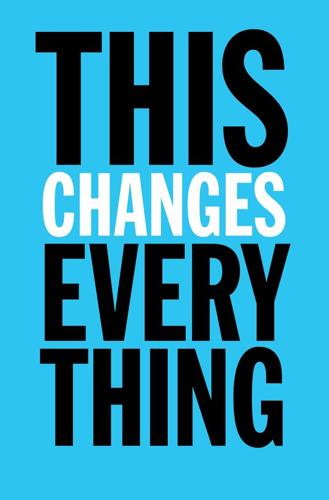
This Changes Everything: Capitalism vs. The Climate
by
Naomi Klein
Published 15 Sep 2014
It has changed many times before and can change again. The delegates at the Heartland conference understand this, which is why they are so determined to suppress the mountain of evidence proving that their worldview is a threat to life on earth. The task for the rest of us is to believe, based on that same evidence, that a very different worldview can be our salvation. The Heartlanders understand that culture can shift quickly because they are part of a movement that did just that. “Economics are the method,” Margaret Thatcher said, “the object is to change the heart and soul.” It was a mission largely accomplished. To cite just one example, in 1966, a survey of U.S. college freshmen found that only about 44 percent of them said that making a lot of money was “very important” or “essential.”
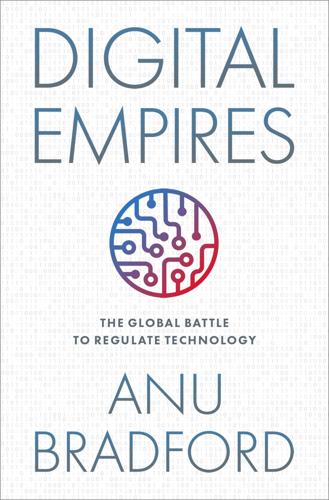
Digital Empires: The Global Battle to Regulate Technology
by
Anu Bradford
Published 25 Sep 2023
Richard Barbrook and Andy Cameron have described the ethos behind the rise of the American internet economy as a reflection of a distinct “Californian ideology,” in that it combines the “freewheeling spirit of the hippies” and the “entrepreneurial zeal of the yuppies.”5 These different West Coast communities—writers, artists, hackers, community media activists, and capitalists—shared a profound faith in the “emancipatory potential” embedded in information technologies.6 Given its diverse foundation, the American market-driven model thus extends beyond traditional neoliberal thinking. It blends the cultural bohemianism of San Francisco with the high-tech industries invented in Silicon Valley, bringing together these seemingly different worldviews under a shared rubric of profound techno-optimism. These early techno-libertarians found common purpose reaching across the political spectrum. These varied groups were united in their goals by their distrust of authorities, hierarchies, and government, and coalesced around the idea that technology allows them to transcend the existing dominant institutions.7 For the left-leaning techno-libertarians, technology offered a way to empower individuals and community activists at the expense of corporate and bureaucratic elites.8 Several prominent scholars, including Yochai Benkler, and influential NGOs, such the Electronic Frontier Foundation, advanced their techno-optimist argument from the political left, emphasizing the internet’s potential to enhance individual freedom and civil liberties.9 For the right-leaning proponents of the market-driven model, technology presented the opportunity to weaken big government and entrench their laissez faire ideology by reducing the power of the nation state, fueling competition, and empowering technology entrepreneurs.10 Even though the early days of the internet combined left and right ideologies under a shared Californian ideology, the free-market ideology has subsequently come to transcend the original countercultural roots of the market-driven model as the internet has further commercialized.11 Even with its faith in markets and reliance on venture capital, there is more to the American techno-libertarian spirit than sheer profit-making.

Blue Mars
by
Kim Stanley Robinson
Published 23 Oct 2010
As for the rest of the Reds, the Kakaze and the other radicals, what they advocated was a kind of metaphysical position, a cult— they were religious fanatics, the equivalent of Hiroko’s greens, members of some kind of rock-worshiping sect. Ann had very little in common with them, when it came down to it; they formulated their redness from a completely different worldview. And given that there was that kind of fractionization among the Reds themselves, what then could one say about the Martian independence movement as a whole? Well. They were going to fall out. It was happening already. Ann sat down carefully on the edge of the final bench. A good view. It appeared there was a station of some kind down there on the caldera floor, though from five thousand meters up, it was hard to be sure.
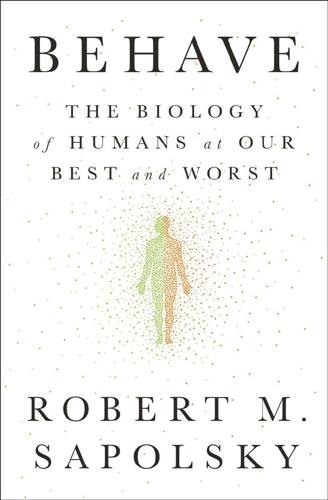
Behave: The Biology of Humans at Our Best and Worst
by
Robert M. Sapolsky
Published 1 May 2017
In the time span considered in this chapter, people throughout the Arab world went from being voiceless to toppling tyrants; Rosa Parks went from victim to catalyst, Sadat and Begin from enemies to architects of peace, Mandela from prisoner to statesman. And you’d better bet that changes along the lines of those presented in this chapter occurred in the brains of anyone transformed by these transformations. A different world makes for a different worldview, which means a different brain. And the more tangible and real the neurobiology underlying such change seems, the easier it is to imagine that it can happen again. Six Adolescence; or, Dude, Where’s My Frontal Cortex? This chapter is the first of two focusing on development. We’ve established our rhythm: a behavior has just occurred; what events in the prior seconds, minutes, hours, and so on helped bring it about?
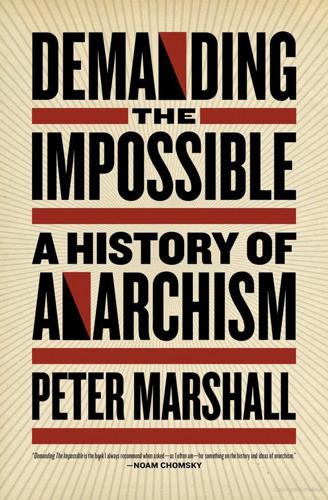
Demanding the Impossible: A History of Anarchism
by
Peter Marshall
Published 2 Jan 1992
To Marx’s call for the conquest of political power, Bakunin opposed economic emancipation first and foremost. Bakunin further tempered Marx’s determinism by stressing the role of the people’s spontaneous will in bringing about revolution. Beyond their theoretical differences, Bakunin and Marx became symbols of different world-views. Bakunin is usually presented as the more attractive personality — generous and spontaneous, the embodiment of a ‘free spirit’.183 Bakunin was the more impetuous and Marx doubtlessly envied him for his ability to charm and influence others. Bakunin possessed what he admired most in others: ‘that troublesome and savage energy characteristic of the grandest geniuses, ever called to destroy old tottering worlds and lay the foundations of new.’184 Yet for all his turbulent eccentricities and contradictions, he was invariably kind, considerate and gentle with his friends.
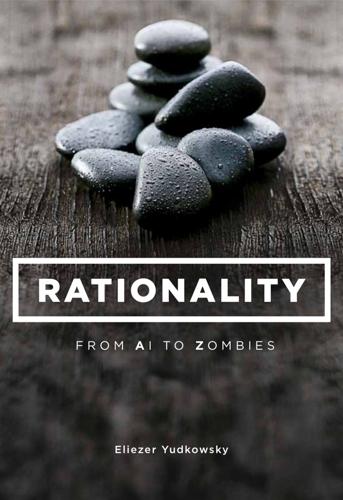
Rationality: From AI to Zombies
by
Eliezer Yudkowsky
Published 11 Mar 2015
There’s a historical record showing over-conservativeness, the many silent deaths of regulation being outweighed by a few visible deaths of nonregulation. If you’re really playing the middle, why not say, “Ah, but technology has benefits as well as risks”? Well, and this isn’t such a bad description of the Bad Guys. (Except that it ought to be emphasized a bit harder that these aren’t evil mutants but standard human beings acting under a different worldview-gestalt that puts them in the right; some of them will inevitably be more competent than others, and competence counts for a lot.) Even looking back, I don’t think my childhood technophilia was too wrong about what constituted a Bad Guy and what was the key mistake. But it’s always a lot easier to say what not to do, than to get it right.